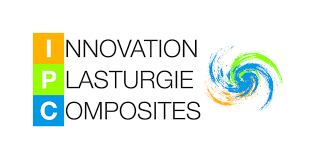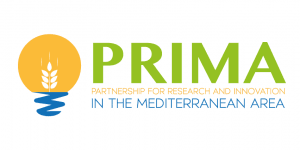
IPC is the Technical Industrial Centre of the French plastics and composites industry, with more than
2500 SMEs directly connected to it. As such, IPC is in charge of providing the plastics and composites industry with innovative and high added value facilities and manufacturing pilot lines, cutting edge expertise and services. IPC covers the full industry value chain with its key fields of expertise including blown film extrusion, thermoforming, design and simulation of parts and processes, advanced injection moulding and tooling, plastronics, and Circular Economy. The main markets addressed today by IPC encompass industrial and food packaging, automotive, aeronautics, health, connectors, and house appliances. Developing new value chains is a key strategic issue for IPC, with focus e.g. on advanced (bio-) materials, micro / nanostructured plastic parts, microsystems on plastics, smart plastics and composites, and multi-materials additive manufacturing.
In the “advanced functional materials” research program line, IPC works on innovative bio-based materials covering the development of their formulations, the investigation of their processability and
recyclability, and the validation of the final properties especially the food contact properties, barrier properties, etc. taking into account all normalization aspects. IPC has a strong experience in collaborative projects with an average of 30 running projects per year, with 15 currently on-going H2020 projects (2 as coordinators).
Team members involved in the project
Dr. Skander MANI (Male) is an R&D project manager in the Materials Business Unit at IPC. Before joining IPC, he has worked for Plastic Ominum on developing of new recycled material for bumper application, GREENLENE, by reactive extrusion process. Dr. MANI has a Ph.D in Chemical Engineering from the Laval University in Canada and a Ph. D on Innovative Materials from Lyon 1 University in France. He has published over 10 peer-reviewed papers in reputed international journals and conferences on field of plastics compounding and recycling, rheological modeling, crosslinking control and reactive extrusion. He is also a holder of two patents.
Sandrine LEBIGRE (Female) received her Chemistry and Process Engineer graduation from CPE Lyon in 2008 and her Master’s degree in Project Management from IAE Lyon in 2009. With more than 10 years of experience in the management of R&D collaborative projects, she is in charge of the setting up and management of R&D programs related to High Value Products at IPC. She is also involved in the EFFRA association and the European Composites, Plastics and Polymer Processing Platform (ECP4).
Dr. Thierry FALHER (Male) received his master’s degree in chemistry and physico-chemistry of polymers from the University Pierre and Marie Curie (Paris VI). He obtained his PhD degree in 1996 from the University of Le Mans for his work on the post-grafting of N-Vinyl-2-pyrrolidone onto a plasma modified polypropylene surface. Since 1996, he is working at ISPA, first as Lecturer, and since 2015 as head of the technology transfer centre. He has joined IPC during the year 2017 as “Advanced functional materials” program line manager. His research activities are mainly focused on improving or adding properties to polymers by formulation, processes, and surface treatments.
Dr. Arnaud LITTNER (Male) studied materials sciences and technologies at the University of Nancy (France). He joined Dechema (Germany) in 2002 where he completed his PhD in advanced materials for aeronautics and glass applications. In 2005, he moved to Ayming where he was appointed as an innovation consultant in EU collaborative research projects. In 2010, he joined IPC – the French Technical Centre for Plastics and Composites – as R&D program manager where he has been in charge of collaborative research, IP management and partnerships for 9 years. Arnaud is involved in EARTO, EFFRA, ECP4, EIT Manufacturing. In 2019 he took the lead of IPC’s Circular Economy research programme.Dr. Gilles DENNLER (Male) obtained a Ph.D. in Plasma Physics at the University of Toulouse (France) and a Ph.D. in Experimental Physics at Ecole Polytechnique of Montréal (Canada). In 2003, he moved to the University of Linz (Austria), where he was appointed Assistant Professor. In 2006, he joined Konarka Technologies Inc. (USA) where he served as Director of Research. In 2011, he took the lead of the Advanced Materials Department at IMRA Europe (TOYOTA Group, France). Since July 2018, he serves as R&D Director at the French Technical Center for Plastic Industries (CT-IPC). Gilles Dennler has co-authored about 100 scientific articles (≥ 12,000 citations; h-index: 44), 6 book chapters, and 30 patents.
Publications and/or products, services related to the project
- The 32nd International Conference of the Polymer Processing Society (PPS-32), Lyon, France
(25-29 July 2016). A New Continuous Extensional Flow Mixer for Compounding and Recycling of Complex Polymer Blends. S. Mani.
- M. Jamshidian, E. Arab Tehrany, F. Cleymand, S. Leconte, T. Falher, S. Desobry, “Effects of synthetic phenolic antioxidants on physical, structural, mechanical and barrier properties of poly lactic acid film”, Carbohydr. Polym., 87(2), 1763 (2011).
- Reprocessing of artificial UV-Weathered Wood Flour Reinforced Polypropylene Composites, L. Soccalingame, D. Perrin, J-C. Benezet, S. Mani, F. Coiffier, E. Richaud, A. Bergeret. Polymer Degradation and Stability 2015, 120, 313-327
- Substitution of Virgin Material by Recycled Material from End-of-Life Vehicle (ELV), S. Rabeau-Epsztein, M. A. Jevardat de Fombelle, T. Falher, D. Jouannet, L. Cauret, Key Eng. Mater. 2014, 611-612, 836.
- Nguyen, P.-M.; Julien, J. M.; Breysse, C.; Lyathaud, C.; Thébault, J.; Vitrac, O., Project SafeFoodPack Design: case study “indirect migration from paper and boards”. Food Additives and Contaminants 2016
Previous projects or activities connected to the subject of this proposal
- SAFE FOOD PACK DESIGN (ANR French national project, 2010-2014): Rational design of safe food packaging – Preventive approaches of the risk of contamination of foodstuffs by packaging materials
- REMIX (Pilot action for DG GROW, ENV and RTD in response to call for Tender N° 154/PP/ENT/PPA/12/6476, 2012-2015): study about recycling solutions for mixed of plastics wastes (sources, sorting and compounding technologies, markets) from packaging, ELV and WEEE.
- NENU2PHAR (H2020 project, 2020-2024, BBI-JTI-2019): For a sustainable and European value chain of PHA-based materials for high-volume consumer products
- TERMINUS (H2020 project, 2019-2023, CE-NMBP-26-2018): In-built Triggered Enzymes to Recycle Multi-layers: an INnovation for USes in plastic-packaging
- SEALIVE (H2020 project, 2019-2023, CE-BG-06-2019): Strategies of circular Economy and Advanced bio-based solutions to prevent plastic contamination and keep our Lands and seas alive
Description of infrastructure and/or technical equipment relevant to the proposal work
The activities of IPC are spread over 5 different locations in France. These facilities gather more than 10 pilot lines covering all the techniques employed in state-of-the-art polymer processing. In the very case of the FEDKITO project, the following relevant equipment will be utilized:
- Twin screw extruders of various sizes to compound the polymers to be processed;
- Single screw extruder coupled with an elongational flow mixer to compound sensitive materials;
- Blown film extruders of various sizes to fabricate films and bags;
- Cast extrusion of various width to prepare plates to be thermoformed;
- Thermoformers to fabricate box and trays.
In addition, IPC is fully-equipped with a laboratory for chemical, thermal, rheological, mechanical characterizations of materials before and after processing. Furthermore, IPC possesses all the expertise and equipment required to test the food contact ability of any plastic product.

